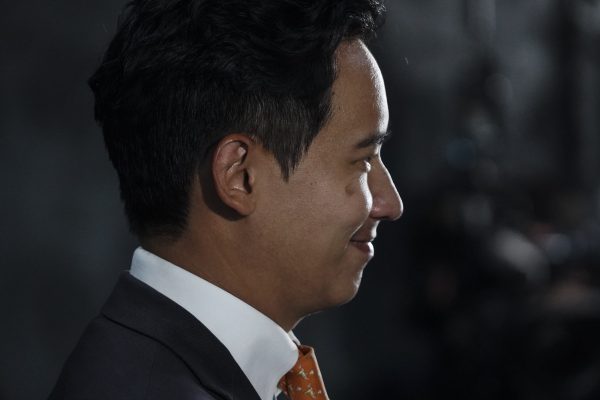It remains to be seen whether the election result will turn into a change in government, as that still requires permission from military-appointed senators. But one thing is certain. Through the election result, the Thai people have demonstrated a clear shift in their political sentiment — voicing their frustrations over how the country has been run and demanding change.
The desire for change shown by the Thai public is closely connected to the country’s inequality. Though official statistics show a recent decline in income inequality, as indicated by the fall of the Gini index for income inequality from 0.45 in 2015 to 0.43 in 2021, such a number can be misleading. Subtracting the effect of transfer payments, comprising mainly government subsidies, the Gini index actually increased from 0.55 to 0.57 in the same period. This indicates that the seemingly improved situation in inequality has been due to government subsidies, not progress in people’s ability to earn higher incomes.
The changes in income of different classes from 2015 to 2019 reveal that the income of Thailand’s middle and upper-middle classes has worsened. During this period, the income of the top 5th quintile declined by nearly 19 per cent, while the 4th quintile experienced a smaller decline of 3 per cent.
A comparison based on geographic areas also yields discouraging results. Barring the Bangkok metropolitan area, the Gini index in all regions of Thailand worsened from 2015 to 2019. This situation is connected to the issue of poverty, which was 7.2 per cent in 2015, 6.8 per cent in 2019, and projected at 6.6 per cent in 2022, indicating a decline in the country’s ability to effectively reduce poverty. Persistent poverty is linked to the rapidly rising population of elderly individuals who are also poor. Most work in agriculture and have limited educational opportunities.
During the years under military influence, Thailand’s inequality has worsened, with the middle classes struggling and a rising number of elderly poor people getting left behind. While government assistance has softened the short-term impacts of the COVID-19 pandemic on poverty, the real damage is likely to occur in the long run.
Thailand’s level of inequality has long been one of the highest in Southeast Asia. The problem is rooted in policies and institutions that existed before the Prayuth government. Yet the recent years have played a big part in fuelling people’s resentment of the military-backed government.
Economic inequality can be somewhat mitigated when overall economic growth is high, as it tends to lift people’s socioeconomic situations. But the Thai economy has stalled in the past decade. From 2013–2019, the Thai economy grew only 3 per cent on average, making Thailand’s growth rate one of the lowest in Southeast Asia. The slower growth has set limitations on upward mobility, leading to a lack of optimism among the younger Thai generations.
While most Thai people have experienced firsthand the effects of stagnation, they have also seen the wealth of the richest in the country continue to grow. Thailand’s wealthiest families have felt little impact from the country’s economic slowdown. For example, Dhanin Cheravanont, the richest man in Thailand and president of the Charoen Pokphand Group, saw his wealth grow from US$14.4 billion in 2015 to US$26.5 billion in 2022. Thailand’s wealthiest also seem to have special connections to the military-backed government. Regulatory disputes tended to end in their favour, while government concessions and protections continued to bolster their prosperity.
The sense of unfairness due to economic inequality was aggravated by the frustration with political inequality. During the rule of the military-backed government, leading opposition politicians were banned from politics and their political party was dissolved. The public was left sensing the lack of justice in their political institutions. As youth protests sprang up in Bangkok to voice their grievances, the government responded with suppression, dismissing the young protestors as ‘misguided’. These actions further fuelled anger with the government.
The future of Thai politics is uncertain. Even if the new government is formed successfully, it will not be easy to promote sudden reform. The issue of inequality is deeply rooted and will take time and effort to improve. Yet, with the Thai public now voicing demand for change, the optimism that had long been lost is back.
Thorn Pitidol is the Director of the Center for Research on Inequality and Social Policy (CRISP) at the Faculty of Economics, Thammasat University, Bangkok.

